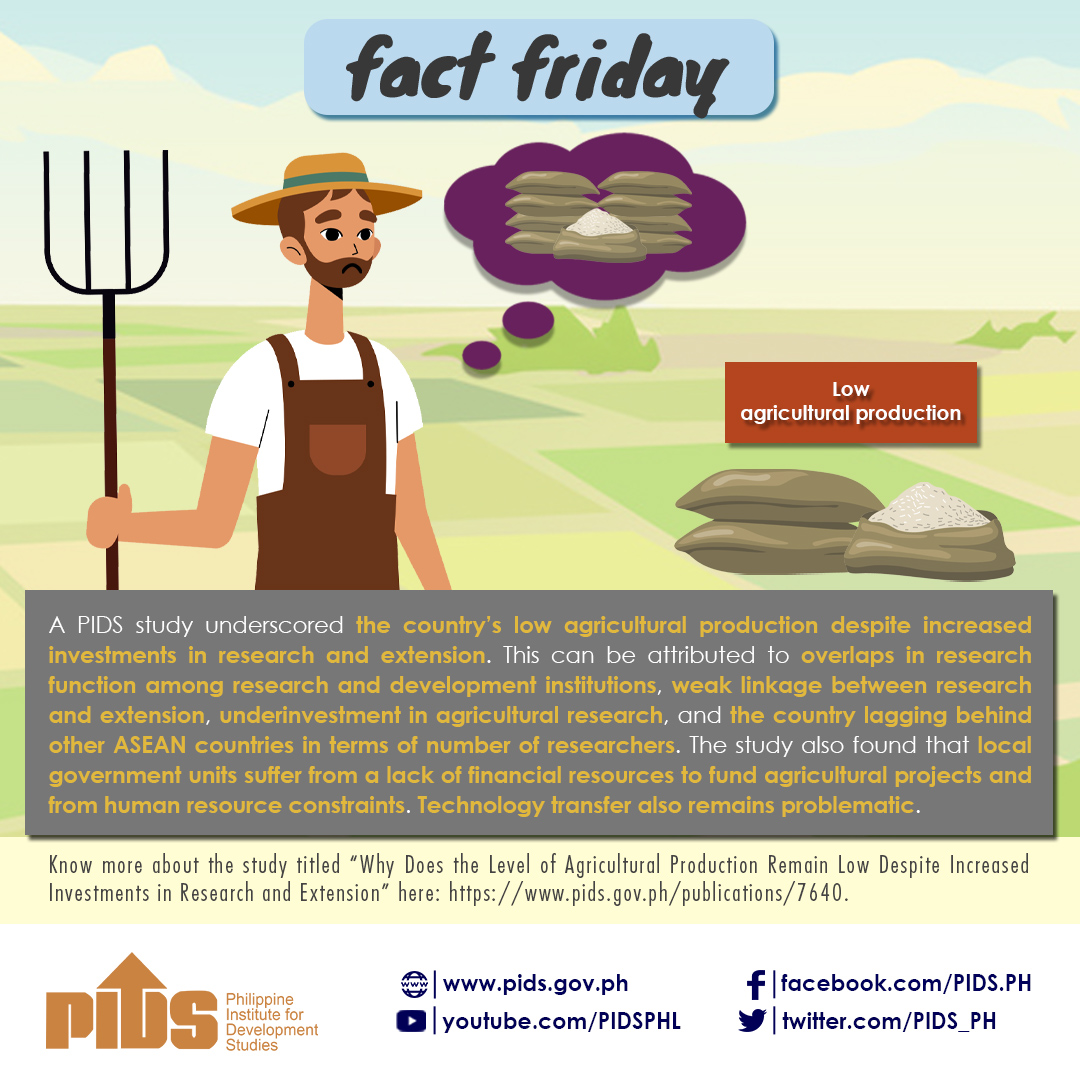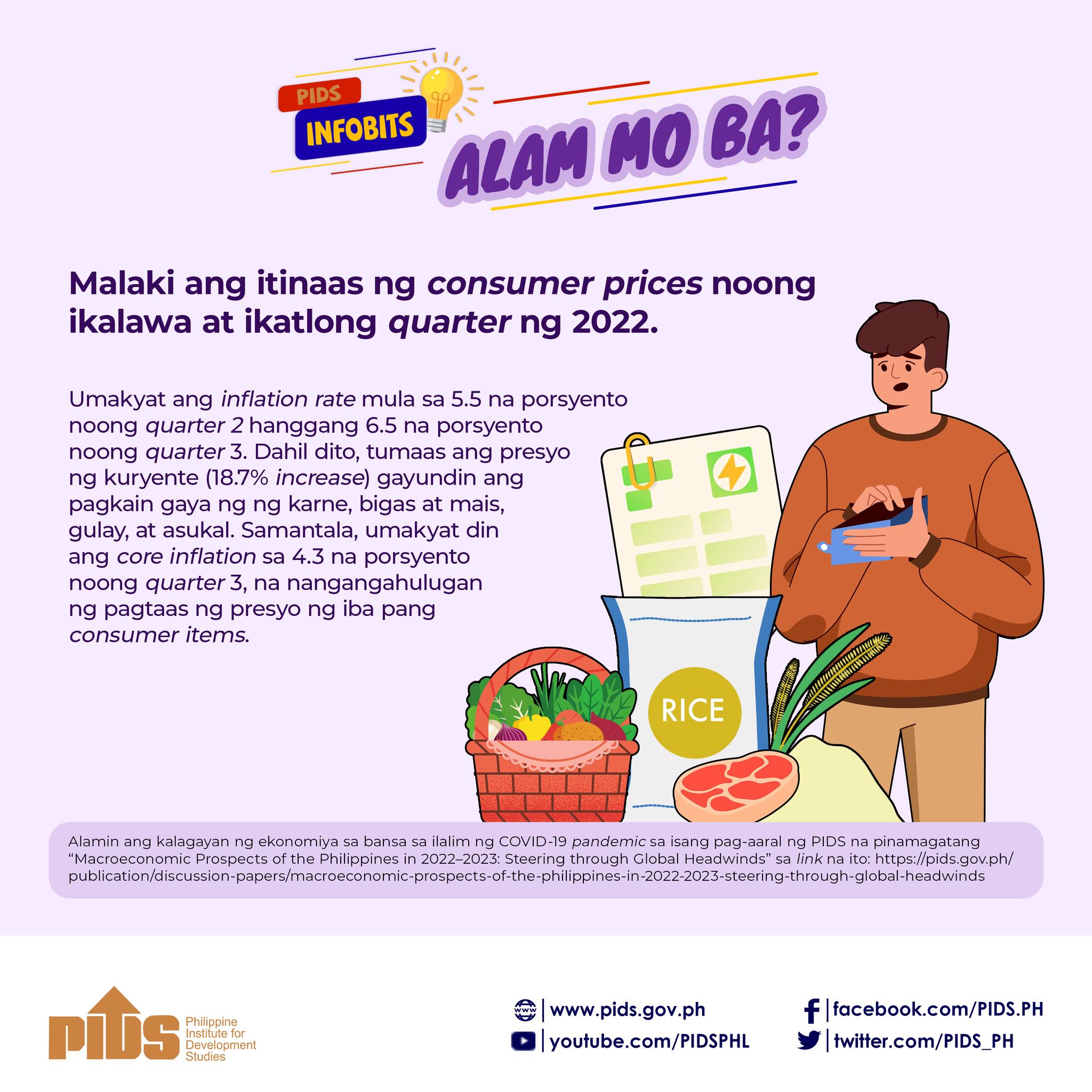TO increase the use of generic medicines among Filipinos, state-owned think tank Philippine Institute of Development Studies (PIDS) urged the use of mystery shoppers and word-of-mouth marketing.
These were part of the recommendations in the Policy Note, titled How effective has the Generics Act been?, authored by PIDS consultants and researchers led by John Q. Wong of the Ateneo de Manila University.
Universal access to health, as stated under Sustainable Development Goal (SDG) 3, also includes access to affordable medicines and vaccines.
“The study results show higher compliance with the Generics Act among physicians than among drugstores and consumers,” the authors said.
“Identifying drugstores and consumers as primary target groups in need of behavioral change allows for greater efficiency and effectiveness in the use of limited government resources for promotional campaigns,” they added.
Based on the study, the use—and even awareness of generic medicines in the country—was still low despite the passage of Republic Act 6675, also known as the Generics Act of 1988, and campaigns done by the Department of Health.
The authors surveyed 1,1572 respondents and only 7.2 percent knew the correct definition of generic drugs.
Around 71 percent were “partially knowledgeable” or able to mention that either generic drugs were of the same quality as that of branded drugs or generic drugs were cheaper than branded drugs.
The results also showed that 21.52 percent were not knowledgeable at all, and gave incorrect definitions of generic drugs.
The authors also said that across six geographic zones, respondents who correctly identified three or four generic drugs were in the National Capital Region, while the lowest was in the Autonomous Region in Muslim Mindanao.
“A relevant strategy would be to tap ‘generic believers’ to encourage others. The study showed that the odds of purchasing generic alternatives among individuals who are influenced by friends and relatives in their medical decisions are higher compared to those who are not influenced,” the authors said.
“The mystery shopper approach will make the distributors aware that there is always someone monitoring their compliance,” they added.
In 2011 a study released by PIDS showed that making medicines more affordable to the poor and underserved remains a challenge in the country.
The study, titled A Profile of the Philippine Pharmaceutical Sector, authored by PIDS research fellows led by Celia M. Reyes, a senior research fellow at the institute, showed that demand for medicines in the country will post an annual increase of 17 percent.
By 2015, the paper estimated that total demand for medicines will reach P222 billion. The majority of this demand is expected to be met through out-of-pocket expenses, rather than government funding or subsidies.
“Drugs and medicines account for 46 percent of the total medical out-of-pocket expenses of Philippine households. For poorer people, this percentage goes up to 55 percent. Making essential drugs and medicines more affordable, especially to the poor and underserved, is one of the MDGs [Millennium Development Goals],” the PIDS said.
Based on the calculations made by PIDS, the demand for medicines will continue to increase to P222.04 billion by 2015, from around P111.15 billion in 2011. More than 50 percent of this will be accounted for by private expenses.
The paper estimated that this year, out-of-pocket expenses for medicines will reach P109.38 billion, while government-funded medical expenses will reach only P1.77 billion.
By 2015, with a steady population growth of 2.04 percent every year, out-of-pocket expenditures for medicines will reach P219.94 billion, while government expenditures will reach only P2.1 billion.
It can be noted that, while there is no aggregate data for national spending for drugs and medicines, the Pids said the data came from local government units.//
These were part of the recommendations in the Policy Note, titled How effective has the Generics Act been?, authored by PIDS consultants and researchers led by John Q. Wong of the Ateneo de Manila University.
Universal access to health, as stated under Sustainable Development Goal (SDG) 3, also includes access to affordable medicines and vaccines.
“The study results show higher compliance with the Generics Act among physicians than among drugstores and consumers,” the authors said.
“Identifying drugstores and consumers as primary target groups in need of behavioral change allows for greater efficiency and effectiveness in the use of limited government resources for promotional campaigns,” they added.
Based on the study, the use—and even awareness of generic medicines in the country—was still low despite the passage of Republic Act 6675, also known as the Generics Act of 1988, and campaigns done by the Department of Health.
The authors surveyed 1,1572 respondents and only 7.2 percent knew the correct definition of generic drugs.
Around 71 percent were “partially knowledgeable” or able to mention that either generic drugs were of the same quality as that of branded drugs or generic drugs were cheaper than branded drugs.
The results also showed that 21.52 percent were not knowledgeable at all, and gave incorrect definitions of generic drugs.
The authors also said that across six geographic zones, respondents who correctly identified three or four generic drugs were in the National Capital Region, while the lowest was in the Autonomous Region in Muslim Mindanao.
“A relevant strategy would be to tap ‘generic believers’ to encourage others. The study showed that the odds of purchasing generic alternatives among individuals who are influenced by friends and relatives in their medical decisions are higher compared to those who are not influenced,” the authors said.
“The mystery shopper approach will make the distributors aware that there is always someone monitoring their compliance,” they added.
In 2011 a study released by PIDS showed that making medicines more affordable to the poor and underserved remains a challenge in the country.
The study, titled A Profile of the Philippine Pharmaceutical Sector, authored by PIDS research fellows led by Celia M. Reyes, a senior research fellow at the institute, showed that demand for medicines in the country will post an annual increase of 17 percent.
By 2015, the paper estimated that total demand for medicines will reach P222 billion. The majority of this demand is expected to be met through out-of-pocket expenses, rather than government funding or subsidies.
“Drugs and medicines account for 46 percent of the total medical out-of-pocket expenses of Philippine households. For poorer people, this percentage goes up to 55 percent. Making essential drugs and medicines more affordable, especially to the poor and underserved, is one of the MDGs [Millennium Development Goals],” the PIDS said.
Based on the calculations made by PIDS, the demand for medicines will continue to increase to P222.04 billion by 2015, from around P111.15 billion in 2011. More than 50 percent of this will be accounted for by private expenses.
The paper estimated that this year, out-of-pocket expenses for medicines will reach P109.38 billion, while government-funded medical expenses will reach only P1.77 billion.
By 2015, with a steady population growth of 2.04 percent every year, out-of-pocket expenditures for medicines will reach P219.94 billion, while government expenditures will reach only P2.1 billion.
It can be noted that, while there is no aggregate data for national spending for drugs and medicines, the Pids said the data came from local government units.//












